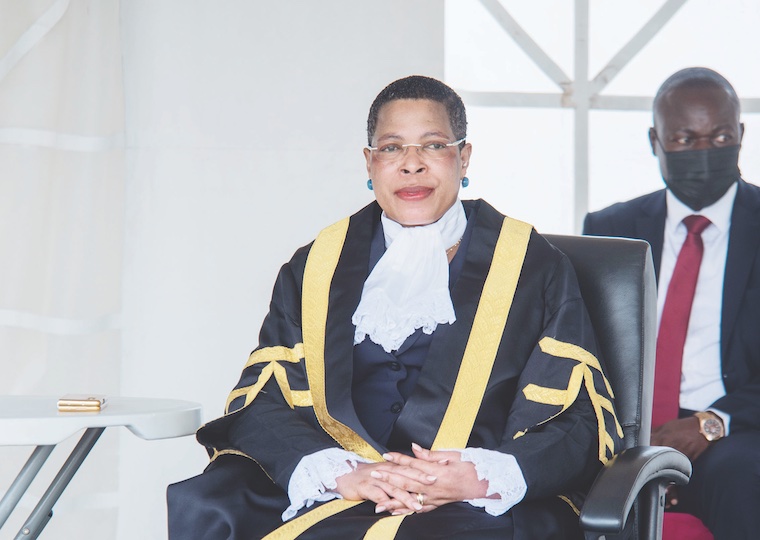USA: How corruption is destroying Uganda

Endemic corruption in Uganda continues to be a serious problem and a major obstacle to investment, according to the US Department
of State’s latest 2024 Investment Climate Statements: Uganda.
The report highlights the pervasive nature of corruption and its detrimental impact on the business environment in Uganda.
“Despite Uganda having adequate laws to combat corruption and a network of anti-corruption institutions, enforcement remains inconsistent,” the report notes.
The Public Procurement and Disposal of Public Assets Authority Act’s Code of Ethical Standards requires bidders and contractors to disclose any possible conflict of interest when applying for government contracts. However, many well-connected individuals enjoy de facto immunity for corrupt acts and are rarely prosecuted in court, according to the report.
Transparency International ranked Uganda 141 out of 180 countries in its 2023 Corruption Perceptions Index, a slight improvement from its 2022 ranking. Nonetheless, the government does not require companies to adopt specific internal procedures to detect and prevent bribery of government officials.
“Larger private companies implement internal control policies, but with 80 per cent of the workforce in the informal sector, much of the private sector operates without such systems,” the report says.
While Uganda has signed and ratified the UN Anticorruption Convention, the report says, it is not yet a party to the OECD Convention on Combating Bribery of Foreign Public Officials in International Business Transactions, and does not protect non-governmental organizations investigating corruption. Some corruption watchdog organizations allege government harassment.
“U.S. firms consistently identify corruption as a major hurdle to business and investment, particularly in government procurement processes,” the report says.
On paper, Uganda’s legal and regulatory systems are generally transparent and non-discriminatory, adhering to international norms. However, in practice, bureaucratic hurdles and corruption significantly affect all investors, with a disproportionate impact on foreigners who must navigate a parallel informal system.
While Ugandan law mandates open and transparent competition for government project tenders, USA investors have alleged that endemic corruption undermines this process. Competitors not subject to the Foreign Corrupt Practices Act, or similar legislation, often pay bribes to win contracts, creating an uneven playing field.
This discrepancy between the legal framework and its implementation poses significant challenges for foreign investors. The requirement for transparent competition is frequently bypassed, with bribes influencing the awarding of contracts. As a result, foreign investors face additional barriers, having to contend not only with the formal requirements but also with the pervasive informal practices that distort the market, according to the report.
The report notes that these challenges highlight the gap between Uganda’s regulatory intentions and the reality on the ground. The impact of corruption on the investment climate is profound, deterring potential investors and skewing opportunities in favor of those willing to engage in corrupt practices.
The systemic nature of these issues underscores the need for comprehensive reforms to align Uganda’s regulatory environment with its legal standards, ensuring a truly transparent and fair investment climate.
RESPONSIBLE BUSINESS CONDUCT
Awareness of responsible business conduct varies greatly among corporate actors in Uganda.
“Corporate Social Responsibility (CSR) programs are voluntary, and there is no formal government program to monitor, require, or encourage CSR,” the report says.
“In practice, endemic corruption often enables companies to engage in harmful or illegal practices with impunity. Regulations on human and labor rights, and consumer and environmental protection, are seldom and inconsistently enforced.”
Uganda’s capacity and political will to regulate the mineral trade across its borders remain weak, the report notes.
“On March 17, 2022, the U.S. Department of the Treasury’s Office of Foreign Assets Control (OFAC) sanctioned Belgian national Alain Goetz, his company the African Gold Refinery in Uganda, and a network of companies involved in the illicit movement of gold valued at hundreds of millions of dollars per year from the Democratic Republic of Congo (DRC).”
The report notes that despite having no significant gold reserves, gold was Uganda’s leading export commodity in 2018, 2019, 2020, 2021, and 2023. In 2023, gold export value rose to $2.3 billion, a record high after a slowdown in 2022 due to a tax proposal that gold exporters protested.
“The Ugandan government does not adequately enforce domestic laws related to human rights, labor rights, consumer protection, environmental protections, or other laws intended to protect individuals from adverse business impacts.”
According to UN Panel of Experts reports, the African Gold Refinery does not adhere to OECD Due Diligence Guidance for Responsible Supply Chains of Minerals from Conflict-Afflicted and High-Risk Areas, and there is no indication the Ugandan government is urging it to do so.
Uganda joined the Extractive Industries Transparency Initiative in August 2020. As part of the process, Uganda formed a multi-stakeholder group (MSG) composed of government, industry, and civil society. As Uganda looks to develop its oil and gas sector, the MSG will monitor transparency and accountability in the sector, including environmental impact and land rights issues. Uganda has not formally adopted the Voluntary Principles on Security and Human Rights.
This complex scenario underscores the significant challenges that corruption poses to Uganda’s investment climate. The government’s inability to enforce anti-corruption measures effectively undermines investor confidence and hampers economic growth.
MARCH TO PARLIAMENT
Frustrated by pervasive corruption, youth protesters last week demonstrated against parliament, which has been beset by numerous allegations of corruption. Many protesters carried placards demanding the resignation of Speaker Anita Among, who has recently been sanctioned by the US and UK governments for alleged corruption.
At least 32 protesters have been released either on police bond or granted bail by the court after their arrest last week for participating in the march to parliament protests. President Museveni responded to the anti-corruption protests held last Tuesday, emphasizing the need to identify foreign funding sources behind the protests.
“Those being funded by foreigners should stop and report to the Minister of State for Ethics, those that have been funding them. We shall not arrest them. In any case, we know a lot about the goings-on in those groups. Our interest is to immunize Uganda against the schemes of the imperialists and their agents,” he stated.
Museveni noted that the planners of the Tuesday, July 23 demonstration disregarded his prior advice, which he had delivered in a national address.
“They, obviously, thought that my advice was of no consequence. Please, Ugandans, avoid these mistake makers. The evidence in court will shock many. As I said, the planners of these demonstrations wanted to do very bad things. The charge by the Police of ‘idle and disorderly,’
I suspect, was used because the deployed personnel did not have all the information. This was a high-quality, intelligence-led operation. I have most of the information.”
The president announced his intention to address the nation again next week to provide further details on the issue. He expressed relief that there was no bloodshed during the protests, stating, “I praise the Lord that there was no bloodshed on Tuesday. The fight against corruption is in my hands. I just need evidence, and action will be taken.”
Museveni reiterated the critical role of accounting officers in safeguarding government resources.
“The accounting officers are the guardians of government money, procurement, and personnel ( jobs, welfare). They let us and themselves down. I am now leading this little war. We fought the bigger war. We shall win this one also.”








